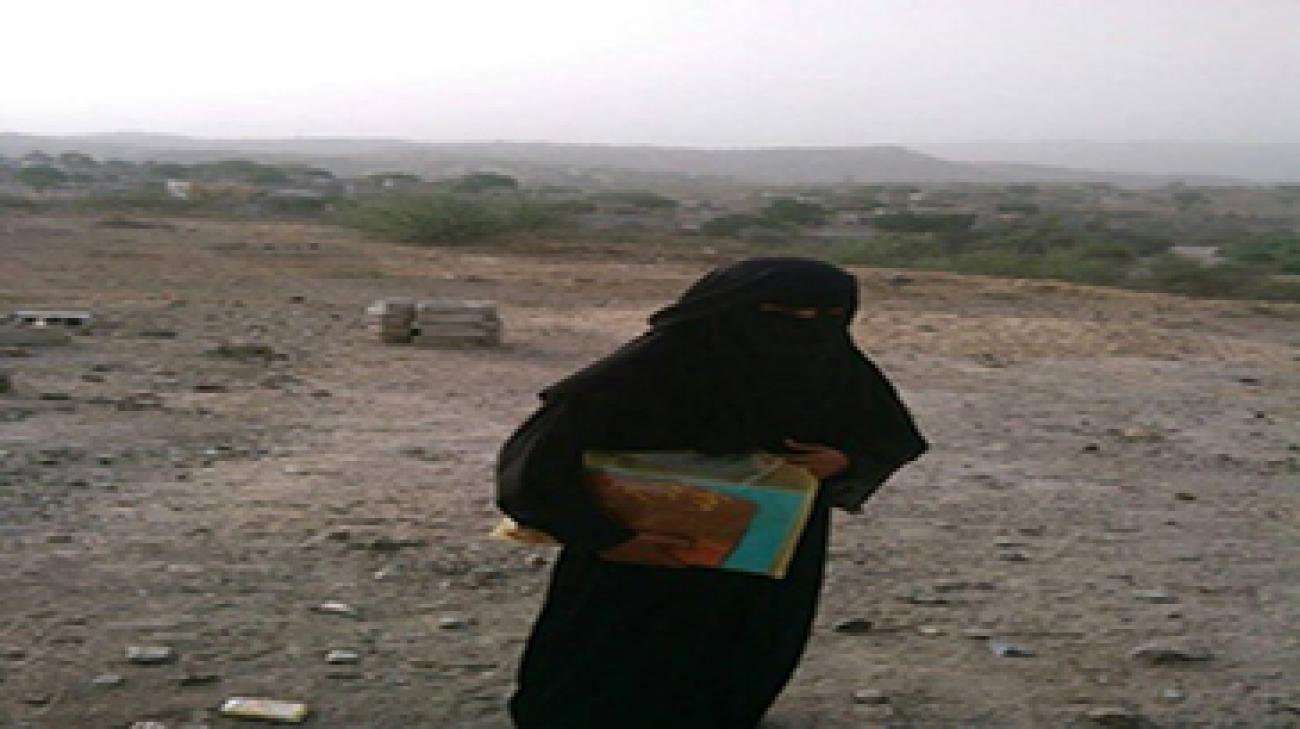Najah Ali is a 24-year-old woman from Yemen’s Hajjah Governorate. Her husband is unemployed, and her father retired. She has two brothers and six sisters. The escalation of the brutal conflict in Yemen in 2015 meant that Najah – and numerous others like her in Yemen – desperately needed a source of income to feed her family and meet basic needs.
Najah proved herself an ambitious and perseverant woman when, despite failed past attempts at setting up her own business, she was one of the beneficiaries of the livelihood component under the 3X6 approach that was implemented jointly by the United Nations Development Programme (UNDP) and the International Labour Organization (ILO) – in the Enhanced Rural Resilience project in Yemen (ERRY) .
“My participation in the programme was an attempt to break the deadlock I was experiencing. I wanted to be independent - that has always been my dream. I have been working hard to make this dream come true,” Najah Said.
Under the 3x6 approach, 14 women participated in life-skills and business start-up training courses. The ILO delivered the My first Business (MFB) training programme, which is an adapted version of the ILO’s Start Your Business (SYB) programme specifically targeting unemployed young women and men.
The direct objectives of the programme are:
- Developing entrepreneurship skills of young men and women.
- Developing young participants’ knowledge and skills to start and operate their own small businesses while taking into consideration environmental issues.
Najah Ali participated in the MFB training and was able to develop the business plan for her business idea.
“At the beginning, I thought the course was going to be very difficult for me, but as soon as I joined I began to understand many business concepts that I was not aware of. I liked the course design which was very participatory and included practical sessions which made the material simple and accessible,” Najah said.
Najah generated income and saved capital through cash-for-work activities by spending 30 days building a hut and cultivating a farm. After participating in the My First Business training, Najah – in partnership with five other participants (group initiative) presented a viable business plan for establishing a ready-made clothes shop. Each participant’s saved capital was tripled and a start-up grant was provided through the project.
“I cannot believe that my dream has become true. Business is good, and we generate good revenue. The training course helped in building my self-confidence and acquiring the management skills and concepts needed to start my business. I am now a working woman who is financially able to support my family,” Najah Concluded.
The Enhanced Rural Resilience in Yemen (ERRY) programme is a joint-initiative funded by the European Union (EU) and implemented by FAO, ILO, UNDP and WFP in four governorates in Yemen (Hajjah, Hodeidah, Lahj and Abyan). The three-year joint programme aims to enhance the resilience and self-reliance of crisis-affected rural communities through support to livelihoods stabilization, food security, local governance, social cohesion and improved access to sustainable energy
More than 30 months of conflict have exacerbated chronic vulnerabilities leaving an estimated 18.8 million people in need of humanitarian assistance – a nearly 20 per cent increase since late 2014. The poverty rate in Yemen has doubled to 62 per cent during this period, and millions of people are now unable to meet their basic needs independently. Conflict, displacement, and economic decline are placing severe pressure on essential basic services and the institutions that provide them, pushing them towards total collapse. Salaries for health facility staff, teachers and other public sector workers go increasingly unpaid, leaving 1.25 million state employees and their 6.9 million dependents – or nearly 30 per cent of the population – without an income at a time of shortages and rising prices. As a direct consequence of the conflict, an estimated 8 million Yemenis have lost their livelihoods or are living in communities with minimal to no basic services. As a consequence, communities, especially these in rural areas, require support to promote their resilience.



